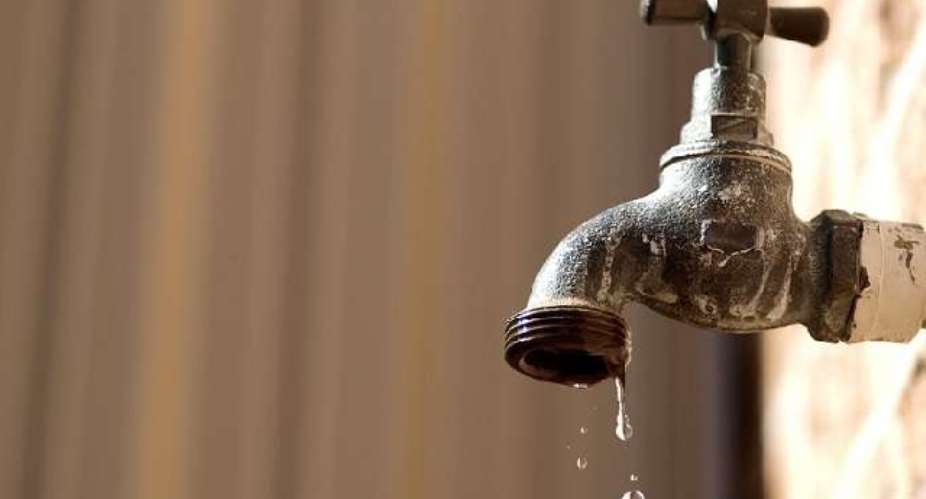Ghana Statistical Service (GSS) has disclosed that findings from the 2022 Ghana Demographic and Health Survey (GDHS) indicate that one in every five (19.1%) persons in Ghana did not have enough drinking water in the month preceding the survey.
In the Northern Region, which recorded the highest percentage, one in every three (32.1%) persons did not have adequate drinking water. Oti (31.2%) and North East (26.2%) were the regions with the next highest percentage that did not have enough drinking water. The Upper East (14.0%) and Ashanti (14.5%) regions recorded the lowest percentage of persons without drinking water in sufficient quantities, with figures less than half those of the Northern and Oti regions.
Nationally, 6.5 percent of the population travelled more than 30 minutes round-trip to obtain drinking water. More than a quarter (27.5%) of the population in the North East Region reported traveling more than 30 minutes to access water, the highest recorded, followed by the Northern (18.6%) and Upper West (18.6%) regions.
Three in every five (59.9%) persons in Ghana did not have water on their premises. Nine in every ten persons (89.8%) in the Savannah Region did not have water on their premises, the highest recorded and 1.5 times higher than the national average. North East (86.5%) and Oti (83.5%) regions have the second and third highest percent of the population without water on their premises. Greater Accra (22.0%) recorded the lowest percentage of the population without water on the premises. Volta Region (47.1%) is the only other region where less than half of the population does not have water on the premises. More than 90.0 percent of the population in the lowest wealth quintile (93.6%) were without drinking water on their premises, more the five times the percentage recorded for those in the highest wealth quintile (17.5%).
Nationally, 83.8 percent of the population had at least basic drinking water service, defined as an improved water source with either water on the premises or a round-trip collection time of 30 minutes or less. The percentage is lowest in the North East Region (43.4%) where less than half of the population has access to basic water services. Savannah (54.2%), Oti (57.8%), and Northern (64.4%) regions have the next highest Page 2 of 2 percentage of the population with access to basic water services. Greater Accra (97.7%) and Ashanti (94.8%) were the regions with the highest percentage who have access to basic services, recording figures that are more than twice that of the North East Region. Persons in the poorest wealth quintile have the lowest percentage with at least basic water services (52.1%), almost half the percentage for persons in the highest wealth quintile (97.9%).
Eight in every 10 (82.3%) of persons using unimproved water sources did not treat their water. Unimproved water sources refer to unprotected dug wells or unprotected springs. Similarly, eight in every 10 (84.3%) persons using surface water (i.e., drinking water directly from a river, dam, lake, pond, stream, canal, or irrigation canal) did not treat their water.
The findings were released by the GSS to mark World Water Day which is commemorated annually on 22nd March.
The theme for 2024 is ‘Water for Peace’.
—Classfmonline





 Lay KPMG audit report on SML-GRA contract before Parliament – Isaac Adongo tells...
Lay KPMG audit report on SML-GRA contract before Parliament – Isaac Adongo tells...
 Supervisor remanded for stabbing businessman with broken bottle and screwdriver
Supervisor remanded for stabbing businessman with broken bottle and screwdriver
 NDC watching EC and NPP closely on Returning Officer recruitment — Omane Boamah
NDC watching EC and NPP closely on Returning Officer recruitment — Omane Boamah
 Your decision to contest for president again is pathetic – Annoh-Dompreh blasts ...
Your decision to contest for president again is pathetic – Annoh-Dompreh blasts ...
 Election 2024: Security agencies ready to keep peace and secure the country — IG...
Election 2024: Security agencies ready to keep peace and secure the country — IG...
 People no longer place value in public basic schools; new uniforms, painting wil...
People no longer place value in public basic schools; new uniforms, painting wil...
 'Comedian' Paul Adom Otchere needs help – Sulemana Braimah
'Comedian' Paul Adom Otchere needs help – Sulemana Braimah
 Ejisu by-election: Only 33% of voters can be swayed by inducement — Global InfoA...
Ejisu by-election: Only 33% of voters can be swayed by inducement — Global InfoA...
 Minority will expose the beneficial owners of SML, recover funds paid to company...
Minority will expose the beneficial owners of SML, recover funds paid to company...
 Prof. Opoku-Agyemang has ‘decapitated’ the NPP’s strategies; don’t take them ser...
Prof. Opoku-Agyemang has ‘decapitated’ the NPP’s strategies; don’t take them ser...
